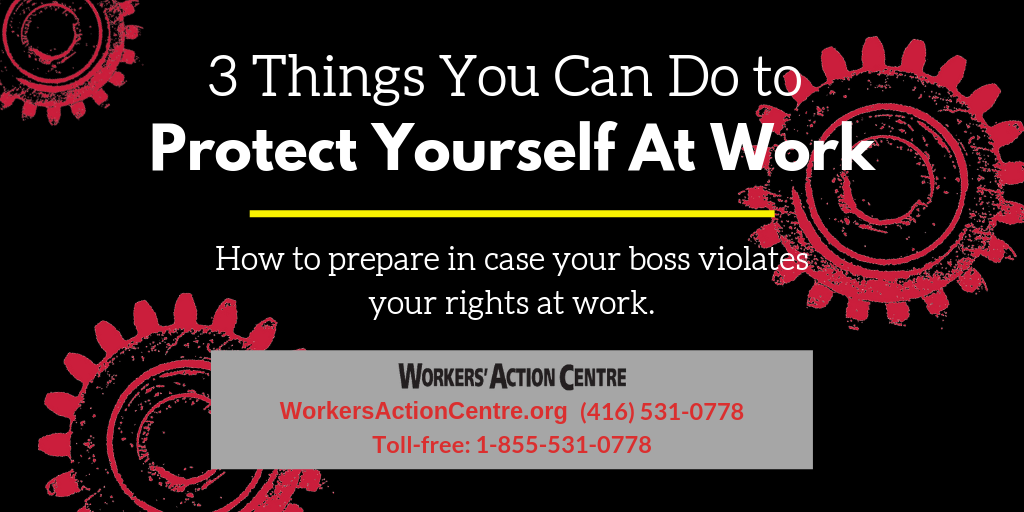Now is the time to stand up and protect yourself at work. Wages are low, harassment and discrimination on the job are high, and violations of our rights are on repeat. In the 2016 proactive inspection blitz by the Ministry of Labour, they found that over 70% of employers that had violated workers’ rights in the past were repeat offenders. The Ontario conservative government has frozen the hiring of new enforcement officers and cut the budget of the Ministry of Labour by $11 million. In this context, it is going to be harder for us to enforce our rights on the job. So what can workers do about it?
It’s easy to get discouraged, but we can be vigilant, organized and united in our vision for decent work. Our free factsheet Protect Yourself: Checklist for Workers helps you prepare in case your employer violates your rights at work. Each item on this checklist can help you when it comes time to speak up for yourself, file a complaint, and win back your unpaid wages.
Share this on Facebook. | Share this on Twitter.
A quick read through will tell you that keeping your own records is key. Here’s a breakdown of three simple actions on the Checklist for Workers that could make all the difference when a problem comes up at work.
-
Write down the hours and dates you worked as well as what you do at work each day. This can help you keep track of hours and public holidays you have not been paid for, any unsafe conditions at work, and more. Violations of record-keeping are common among employers, so you should be the one to keep a reliable, honest work journal.
-
Write down information about your employer and the company you work for. Make note of your boss’s name, job title, work and home addresses, phone numbers, license plate number, or anything else that may help you locate him or her. This is important because in some industries, like construction or if you work for a temp agency, employers might disappear in order to avoid paying your wages.
-
Write down the details of harassment you experience at work as well as what happened leading up to the harassment. Sometimes employers can use harassment to stop us from asking about our rights or will try to force workers to leave the job. This is illegal and if you are experiencing harassment, you are certainly not alone. By writing down the details, you have the best chance of holding the boss responsible.
When you keep your own notes about these things, you’re a step closer to enforcing your rights. The law is not designed to make it easy to get workplace justice. But when more and more workers insist that bad bosses respect our rights, we can send a clear message to employers and the government that we need decent work now! You have the right to hold an employer responsible when they disrespect your rights at work. And you have our support at the Workers’ Action Centre to help you fight for your rights. If you or someone you know is experiencing a problem at work, please give us a call at (416) 531-0778 and we’ll be glad to help.
